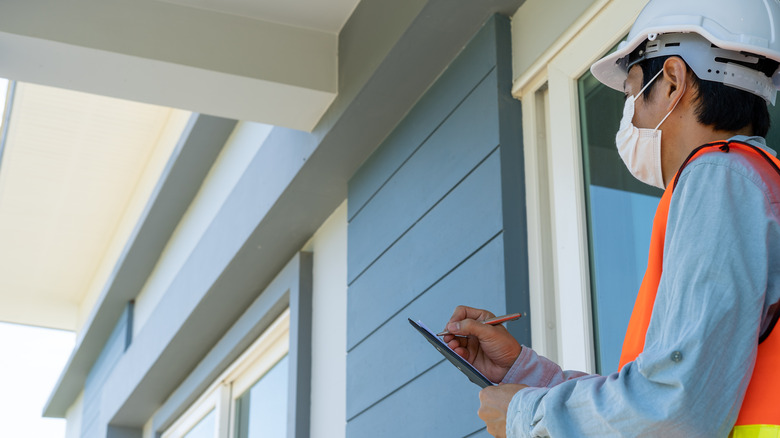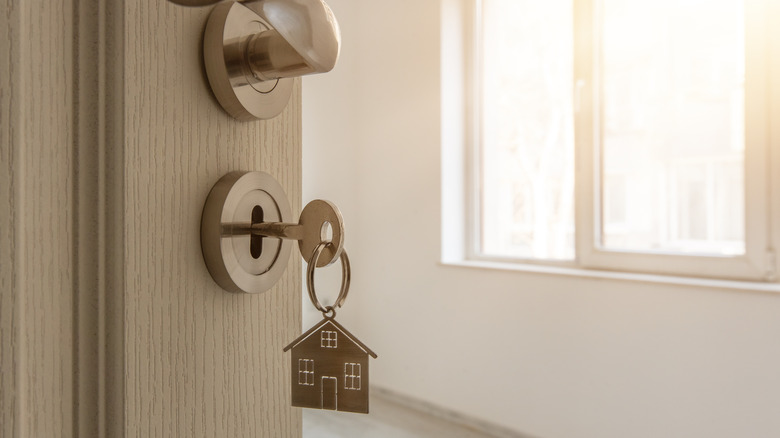The Entire Home Buying Process Explained
Whether it's your first or your third, buying a home is always a long and possibly stressful process. With all the elements involved, including finding funding, scrolling through listings, and closing the transaction, it's no wonder the experience can be daunting. According to Forbes, 44% of people in the process of buying a home say they have felt nervous, 50% were anxious, and around 35% admit to crying at least once during this important time in their life.
Real estate transactions involve many moving parts, people, and of course, money. You will interact with several people, including real estate professionals, financial planners, bankers, home inspectors, and of course, the people who are selling their homes. The best way to reduce your anxiety is to know what will happen in advance, and this is why we've written this guide. We hope it is a helpful tool that prepares you for buying your next home.
Save for a downpayment
The first step towards buying a home is saving enough money for the downpayment. According to Investopedia, banks prefer to finance mortgages for people who can put down at least 20% of the home's sale value. This is a big lump sum, and saving for it might seem like a big obstacle. However, you can save for your dream home fairly quickly with the right strategy.
Wealthsimple suggests many strategies for saving for a home, including living in a smaller apartment, getting roommates, putting any large lump sum in a savings account, and paying your daily expenses with cash rather than a card. If you live in a city, it might be tempting to rent an apartment in a cool neighborhood — one with lots of shopping, restaurants, and bars. But rent in these areas tends to be much higher than in more modest neighborhoods. If you want to save quickly, living as cheaply as possible is the only real way.
See what size mortgage you qualify for
While you save for your downpayment, it's not a bad idea to know in advance what kind of mortgage you can qualify for. Many banks and lending companies provide mortgage pre-qualifications to help people understand what sort of loan they can realistically receive. According to Investopedia, there is a difference between a pre-qualification and a pre-approval. The pre-qualification is simply a calculation of how much a person could likely get, should they ask for approval for a full mortgage. Think of it as an estimate of the credit you could get from a lender.
Be aware that a qualification is not an approval. To get a pre-approval, you need to pass a credit check and verify your source of income and your assets, as per Rocket Morgage. A pre-approval gives you a more realistic estimate of the kind of mortgage you can get once you've decided to make an offer on a home.
Choose the type of home you need
Once you've saved enough for a downpayment and have either a pre-qualification or pre-approval for a mortgage, you can start thinking about what kind of home you want to move into. According to Practical Money Skills, there are three main types of residential properties: single-family homes, condominiums, and co-op housing.
Single-family homes are detached properties, and what we typically think of when we think of a house. They are typically found in suburbs and rural areas, as well as in low-density neighborhoods in cities. When you purchase a single-family home, you are responsible for all the maintenance and upkeep. This is what differentiates condos from single-family homes. When you buy a condominium, you own the specific unit you live in. However, there are fees for the maintenance of the property as a whole. Think of it as a cross between a family home and an apartment, as per Bankrate.
Finally, there are housing co-ops. In a co-op, a committee of residents decides who gets to move in the community, and residents are expected to participate in the running of the property. As per Investopedia, a housing co-op is a corporation, and people who live on the property own "shares" in the form of a home or an apartment. All residents are expected to participate in the running of the co-operative.
Decide which features you want in your home
Now that you've decided the type of home you want to purchase, now is the time to look at which features are important for you. Features can vary wildly between houses, and the perfect property might not exist, so we suggest writing three lists: "must have," "nice to have," and "not important."
As Bob Vila explains, many elements of a home can go on these lists. Are you willing to buy a home that requires renovation? How much storage space do you need? Do you want a fireplace? Is the neighborhood somewhere you want to live for the next 20 years? How many bedrooms will you need? How many bathrooms? Do you really need fancy natural stone countertops, or are you happy with less? The list can go in as much depth as you want, but don't get bogged down by the tiny details.
Hire a real estate professional
You know what kind of home you want, and what features it should have. It is now time to enlist the help of a professional real estate agent to help you find the perfect home that suits your needs. As per The Balance, you should spend some time interviewing potential agents to find the one you work best with. Make sure you tell the agents that you are at the interviewing stage, and that you do not interview more than one agent per company.
HomeLight has some advice as to how to interview your real estate agent. Ask how long they've been in the business, how well they know the area you plan on moving to, how many clients they currently have, and how much do they charge. Finally, when you're ready to commit to an agent, you might be asked to sign a broker's agreement, a contract that defines the duties of the agent or broker during the house buying process.
Shop for a home
Now comes the fun part ... or the least fun part, depending on where you stand when it comes to shopping for a home. This is also the part of the process that might take the longest (aside from saving for a downpayment). Investopedia has advice on how to shop for a home with as little hassle as possible. If you've already sought a mortgage pre-qualification or pre-approval, you don't need to worry about what you can afford. If you haven't, you should go back to that step to avoid frustrating delays when applying for a mortgage. Take your time to shop around and visit many homes, and do not invest yourself emotionally with any home at this stage.
The New York Times suggests touring open houses first to see what kind of stock is available in the area you're interested in. Many real estate agents also prepare online virtual tours, which can be live or pre-recorded. It's not the same as visiting in person, but it can save you time.
Secure your funding
Once you've decided on a home, it's time to apply for a mortgage. If you've done a pre-approval, this step should be easier, as your lender already has all the documentation it needs to approve your loan. According to Rocket Mortgage, the lender looks at specific elements of your financial profile. This includes your income and job history, credit score, assets, debts, and the property you're trying to buy.
Documents you will need to provide include proof of income, credit information, and a list of assets and liabilities. This often involves providing bank account statements, investment statements, and other financial documentation. If you are reading this post early in the process, this will give you time to gather these documents, so you're not caught off-guard when the lender asks for them! Once your funding is secured, you can move to the next step in the process: Making an offer on your dream home!
Make an offer
You found the perfect home. You're pre-approved for a mortgage for the amount you need to buy it. Now comes the time to make the offer! The Mortgage Reports provides some tips on how to make a successful offer. As we have mentioned above, getting your mortgage pre-approved is the first step. When placing your bid, make sure it isn't for your entire mortgage amount. You want to leave some space for future negotiations, as well as for increased interest rates. Also, make sure you get a market evaluation for the house you wish to make an offer on, as it will help you evaluate whether the seller is asking a fair price for the property.
Once you've decided to make an offer, loop in your real estate agent, who will take care of the required documentation to make an official offer, as per Rocket Mortgage. The seller can accept, reject, or make a counteroffer.
Get a home inspection
If your offer is accepted, the next step should be to have a home inspector evaluate the house. Sellers can sometimes try to hide major defaults and issues, hoping to sell their property without paying for repairs. A home inspection is essential because it offers you important property information, such as what repairs you may need to tackle before moving in, as per Investopedia. This will help you make a more informed decision on your investment. In typical purchase contracts, a clause allows buyers to cancel their offer within seven days of receiving the home inspection report.
According to Opendoor, a home inspection covers every aspect of a home, including the foundation, attic space, electrical and plumbing system, walls and ceilings, as well as the roof and exterior. After receiving the inspection report, you have three choices: keep your offer, ask for repairs, or rescind your offer.
Wait for repairs if necessary
If the home inspection has revealed any flaws, and you have not rescinded the offer because the seller has agreed to pay for repairs, the next step is to wait for the repairs to be finished.
The home inspection and repair is a very important step in purchasing a home. You do not want to move into a house with major flaws that need expensive repairs or renovations. If the seller does not wish to pay for repairs, but you still want to buy the home, you can ask for a price reduction, as per Investopedia. This price should consider the extra money it will cost to do the repairs. However, if you are buying a home "as is," there will be no possibility of asking for repairs or reducing the price. If you decide to go through with the transaction, you will have to pay for the repairs yourself.
Close the purchase
Once the home is ready to change hands, the real estate agent(s) responsible for the sale will begin the closing process. Investopedia explains that during this time, you will need to open an escrow account, which holds the money for the transaction. Next, you will negotiate closing fees. Many lenders try to take advantage of people's lack of knowledge by imposing "junk fees." Make sure you negotiate closing fees with all parties involved in the transaction.
Once you've made the offer and it has been accepted, talk to your lender to lock in your interest rate in writing before the mortgage amount is disbursed to the seller. And before you sign the papers, make sure you do a final walk-through of the property. This will be your home for a long time, and you will want to be sure this is exactly the home you need! Once you're satisfied with your decision, go over the paperwork with a professional. If you've hired a lawyer, you should go over all the paperwork with them the day you decide to sign the contract.
Once you sign the contract, the purchase amount is disbursed to the seller, the mortgage is activated, and you can finally call yourself the proud owner of your new home!
Move in
Once you are the owner of the property, you can finally move in! The moving process can be as stressful as buying a house and requires a lot of planning. Moving.com has a helpful planner that details what you need to do eight weeks before the big day. The checklist includes everything from researching moving companies to selling gently used items.
To move, you will need to prepare your belongings, arrange for transportation, and decide if you want to hire professionals, as per The Spruce. Creating a schedule will help reduce anxiety due to the stress of moving and keep track of timelines and costs. If you want to hire professional movers, Moving.com suggests getting referrals from friends and families, getting a quote from at least three different movers, checking the mover's license and insurance, and checking for professional accreditation. A quick look at reviews online can also help you choose the best mover for your needs.
Care for your home
Buying a home is not the end of the process. In fact, it is only the beginning of a new one: Caring for and maintaining your home. Homelight has some handy tips of things to keep an eye on in your home all year long, such as your doorbell, light fixtures and outlets, bathroom grout and caulking, gutters (especially in the fall with falling leaves potentially clogging them), maintaining your roof and siding, and changing your HVAC filters.
The New York Times also has a list of annual maintenance checks and tasks you should do every year. This includes inspecting trees, bushes, and fences, looking for issues with your foundation, inspecting your patio or deck, maintaining your pool before summer (if you have a pool), checking the plumbing for cracks or leaks, and checking the smoke alarms. A healthy and safe home is a happy home!













